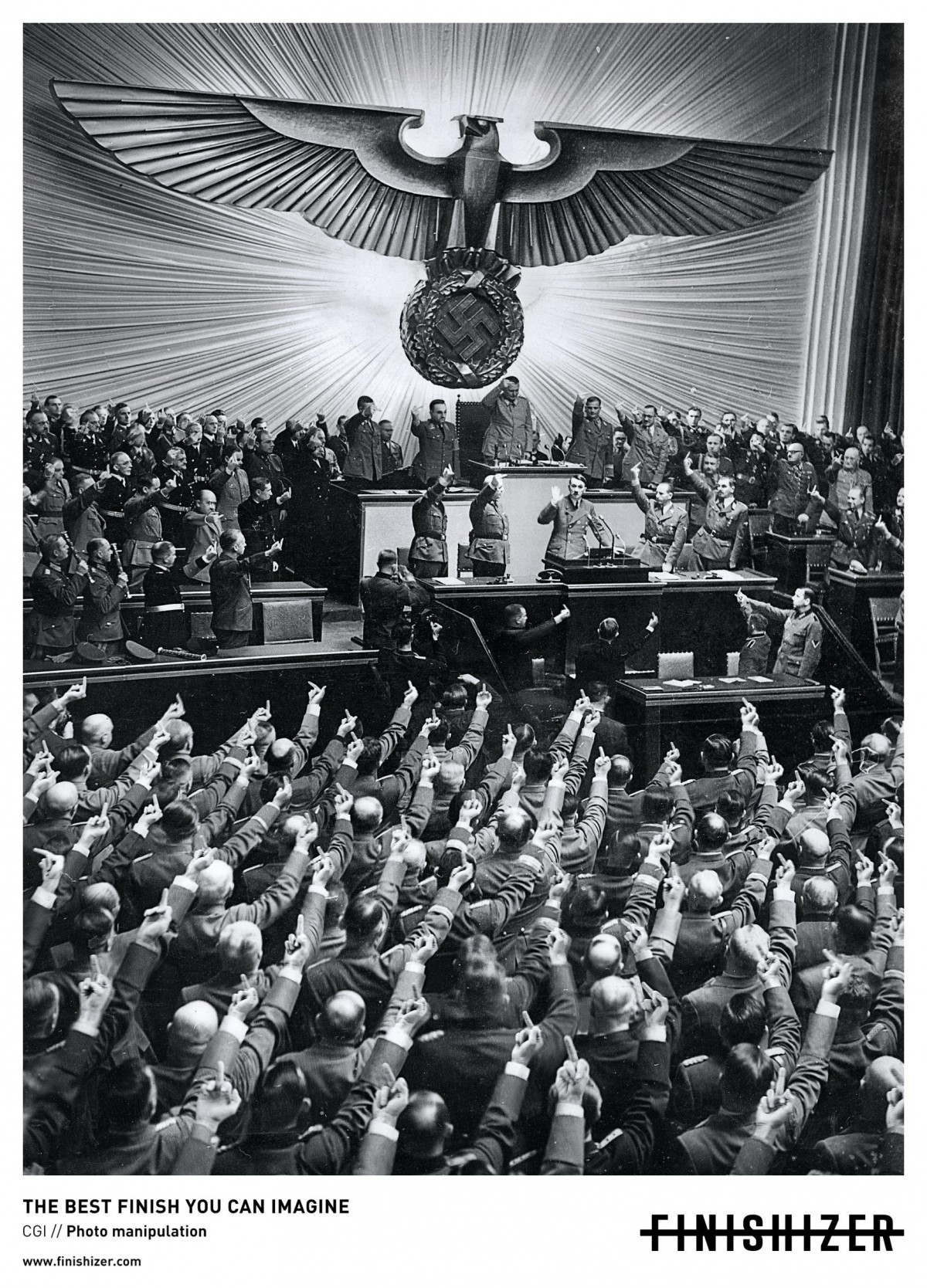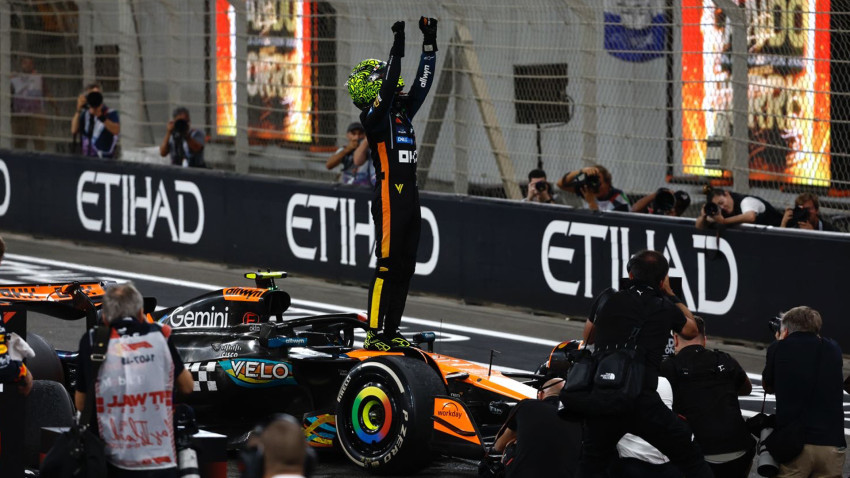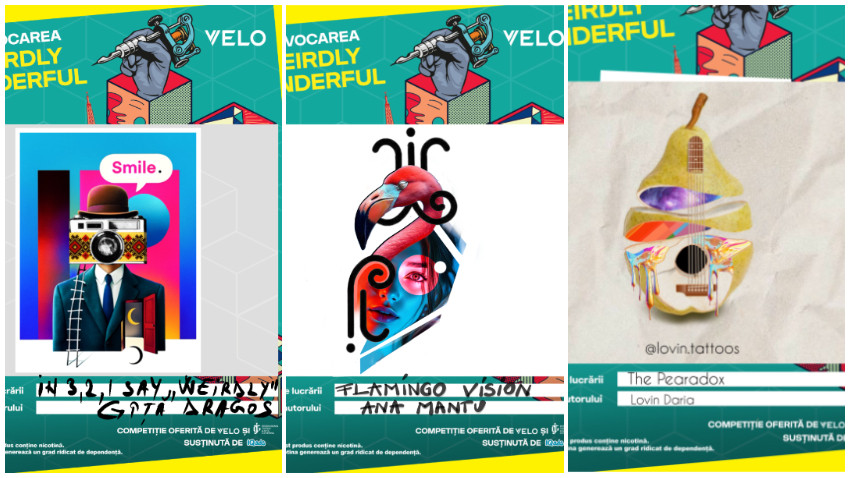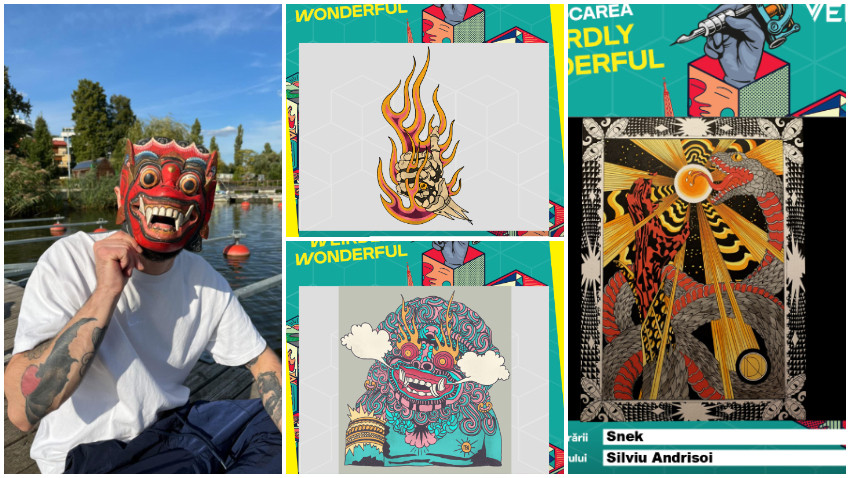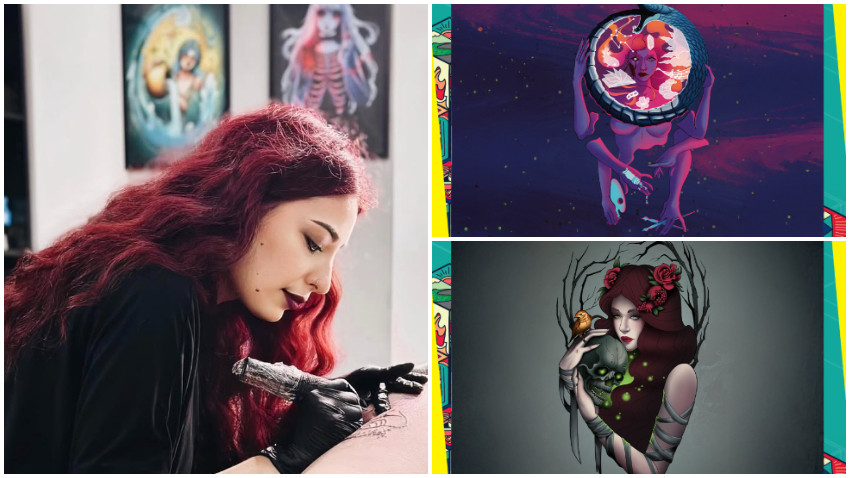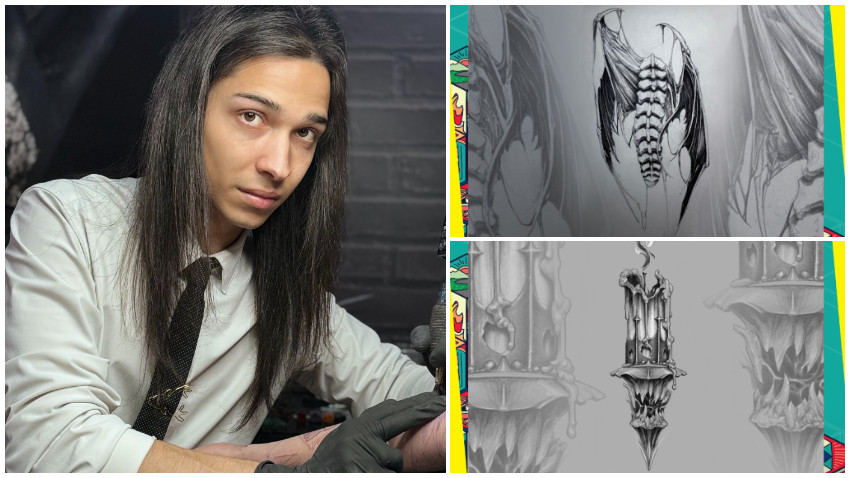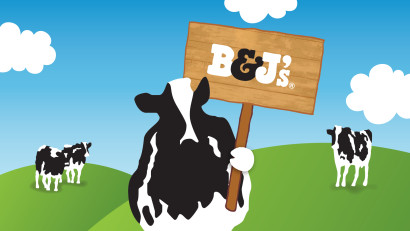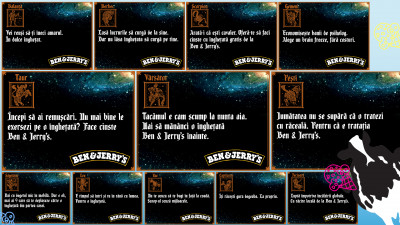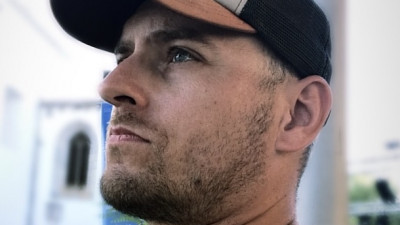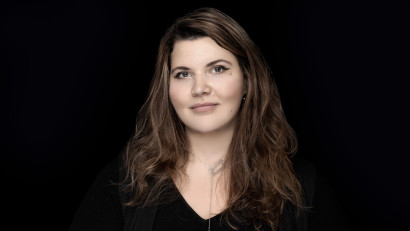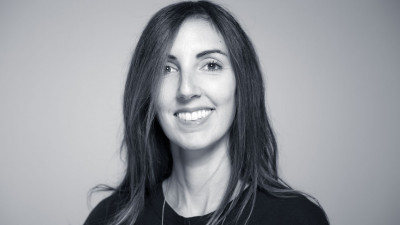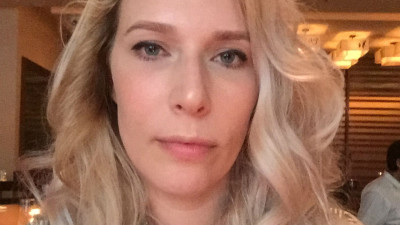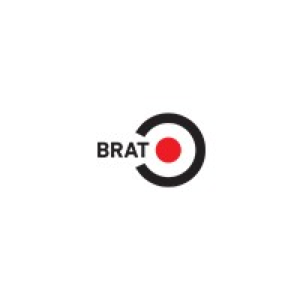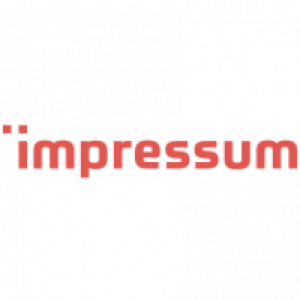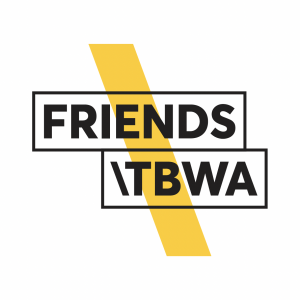This year, in Cannes, Bartek Klimaszewski, Creative Director McCann Worldgroup Poland, saw an interesting lecture called “One Argentinian, one Brazilian and one Columbian walk into a bar”. He was surprised how close it was to the Polish reality. But we, on the other hand, weren't so surprised at how similar it seems to the Romanian one:
Bad history. Religion. Poverty. Unstable governments. Dodgy budgets. A reality that forces you to fight the system.
Bartek had his first intersection with advertising when he was a child: he spent endless hours staring at the ads of Paris Match, Playboy and Newsweek. However, his oficial debut was in 2004, when he was 26. Since then, he thought of quitting and starting an ice cream business, but he is still here. Right below, you'll find a fair share of stories from his 14 year adventure in advertising.
Versiunea in romana a interviului se gaseste chiar aici.
Your start in advertising
My father worked for LOT Polish Airlines, so despite of communism, I got the chance to taste the West. My parents’ house was full of Paris Match, Playboy and Newsweek magazines. I remember spending endless hours staring at all those shiny print ads.
Fast forward to 1989. After the fall of the Berlin Wall, we received a strange phone call: some guy claimed to be my mother’s cousin from Brazil. We never knew he existed: it was the first time he visited Poland since he was a kid. He found our number in the public phone book (think Google of the late eighties).
Later, he invited us to his place. All four of us. My mom was concerned: how will we fit in? Maybe we should bring along our towels? After arriving to Sao Paolo, I saw the most kick-ass-Dynasty-like-residence in my life. A tennis court. A helicopter landing place. A house that looked like billion dollars. His next-door neighbor was Ayrton Senna!
Wondering through the residence, I came upon this room full of small metal statues. I asked my uncle:
- What are these?
- Just some awards from an advertising festival. They’re called “Cannes Lions”.
- How many do you have?
- 25.
- Tell me again, what do you do?
- I shoot commercials.
His name is Andres Bukowinski, you may know some of his work:
Important stages
I got into advertising rather late – at least by today’s standards. It was 2004. I was 26 when I arrived at my first interview in DDB Warsaw. The creative department was run by a crazy Scottish. I think the only reason he offered me an internship was the fact, that I was the sole person in the whole agency who understood his English.
It was the fall of the Golden Age of expats in the advertising community. And I’m really happy to be old enough to remember it. After the Scott there was an American Croatian (who fired me after a month), an Englishman and a Norwegian. In fact, my first Polish CD appeared in my life when I already knew the drill.
A couple of years later, I had a crisis. Been there, done that, nothing new. At the age of 35 I wanted to quit and open an ice cream business. But then I thought “wait, maybe this whole digital is worth trying?”. This is how I ended up as a deputy creative director in K2 – biggest independent digital agency in Poland. It was like being an intern again, but far better paid.
One of my CDs always said, "you have to get awards, you're gonna make shit loads of money". Seems legit. So I got my shit together and co-created some cool stuff:
Moneywise, I had to wait for my first Lion to prove he was right:
Agency interviews
My third agency was Ogilvy. My team partner back then was a friend of mine, who never really gave a shit about advertising. As a DJ he was more into parties and fun. One day they he realized, he had a Mac with premium internet connection (we’re talking 2005). Why not use it? He installed a p2p program, entered all available Rocco Siffredi hard porn movies and pressed DOWNLOAD.
The next day all servers were dead. Not only in Warsaw. And not only in Ogilvy. The whole WPP network got infected. They had problems in Hong Kong, London, Singapore and Moscow. And, of course, we got sacked.
I was a junior copywriter with no awards, shitty portfolio and a maniac team partner. And guess what. Every CD in town wanted to meet us. Every interview begun with a question: is it true that Rocco invaded Ogilvy?
Significant changes in the industry
There was more fun and less corporate bullshit. There was more money. There was more rock and roll. People had more guts. One day an American CD farted during a PPM. All he said was “don’t worry, I’m sitting on it”.
I was getting older, so was the industry. Some things got more serious. Others – like the whole digital revolution – less demanding.
The local flavour
First of all, Poland is a "specifics" country. Before WWII we were a typical CEE circus with many minorities, culture tensions and different languages. During the war, we lost our nobles, our middle class and our Jews. After the war, soviets deported all non-Polish nationals.
As a result, we’re a cultural, racial, religious and creative monolith. We all like jokes we already know. Speaking the most difficult language in the world, we build our ads on play of words, nobody else understands. What surprises me is that it doesn’t evolve.
Local versus global
There was this joke about an American super spy sent to Siberia. He spoke, drunk and even smelled like a native Russian. When he entered a bar in Taiga, the bartender said: You’re a spy. Why? Because there are no black people in Siberia.
It’s the same with foreign formats. We don’t buy them.
Factors that influence the industry
At the moment, everything is like “I need everything, in no time, for nothing”. The question is, has it ever been any different? My uncle told me, that from his fifty years perspective, we started to get to know advertising when it was already declining.
This year in Cannes I attended an interesting lecture. It was called “One Argentinian, one Brazilian and one Columbian walk into a bar”. It was a chat of three South Americans working as CDs in States. What hit me was the fact they were describing our Polish reality.
Bad history. Catholic religion. Poverty. Unstable governments. Dodgy budgets. A reality that forces you to fight the system. So how come most agencies from South America have more Lions than Poland as a whole?
I guess it has to do with weather. We’ll see if global warming will increase our creativity.
I think there’s a paradox out there: on the one hand, we have a whole generation that grew up in Europe without borders. Kids with no communism complex, great language skills and open minds. There is more and more outstanding work which gets noticed outside Poland. On the other hand, our industry is afraid to do bold things.
Let me give you an example: the most successful campaign in the history of Polish advertising, 13 Lions. That same month, half the team responsible got fired. Just how bizarre is that?
Another major problem I see is that we don’t have enough foreign creatives. If everybody has the same insights, there is no tension. No tension is no surprise, and no surprise is no awards.
How does technology influence the creative product?
During the golden era of radio, industry was afraid of TV. It’s just tools. Technology is good as long as it doesn’t get in the way.
ATL is slow and boring. I love the speed of modern marketing.
Trends
Our economy is growing, so is the industry. There is an increasing number of local creative shops and tech companies. We are a world leader in gaming. As a result, advertising struggles to attract young talents. Kids preferer startups over agencies.
At the same time some of the old dogs lost the game. Big names like Y&R, TBWA and JWT exist only on paper. Big network agencies struggle against new reality. But also new, potentially dangerous players, sometimes face the wall – recently Delloitte Digital closed its ATL department. Eat this Mr. Big Bucks Consultant.
So, these are really exciting times, especially for an agency like McCANN – one with a big heritage, strong portfolio and a clear vision: be creative or die.
If a foreigner saw Polish commercials
I guess he would be surprised at how conservative these commercials are – only white people, no gay couples. Our reality is much more diverse.
Illustrative local campaigns
To the last tree standing:
Ben&Jerry's Unbreakable Rainbow:
Mastercard Business Facelift:


![[Adland neighbours] Bartek Klimaszewski (McCann Worldgroup Poland) & the changes in advertising: "There was more money. There was more rock and roll"](https://media.iqads.ro/2018/10/bartek-klimaszewski-cover-850.jpg?v=201810231205)
